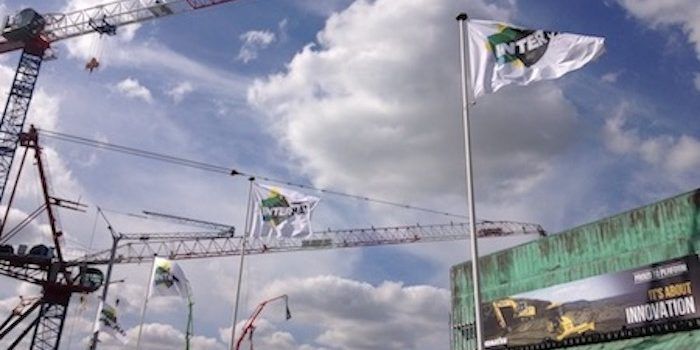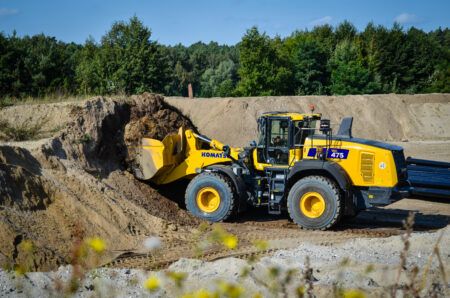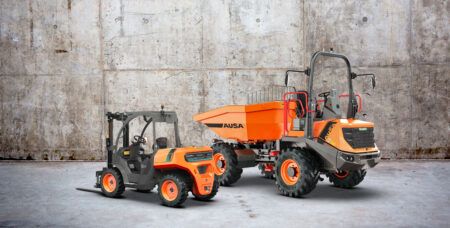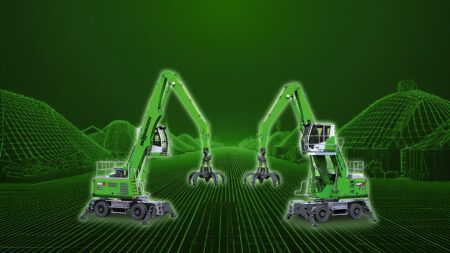The Committee for European Construction Equipment (CECE) declared its disappointment that more than 25% of machines inspected at Intermat Paris failed to match European Compliance Directives.
CECE’s traditional sweep of the show, behind closed doors, revealed the grim results. Speaking afterwards, CECE president Enrico Prandini (above, left) expressed his sadness at the findings, especially when so much time and effort had been invested in this area by European manufacturers.
European Directives govern minimum standards for safety of industrial vehciles, and were the machines that do not meet these standards put on sale to the public, penalties defined by the relevant EU member state (in this case France) would be applicable.
Examples of some specific problems with machines at Intermat included: maximum distance between two steps to access the machine not respected; opening of the cabin door blocking the natural way to access the cabin; lifting accessories fixed on machines not compliant with the requirements of lifting operations; no noise labelling; and no CE marking.
“Market surveillance is an essential pillar of the internal market,” said Prandini. “Without appropriate controls on compliance, requirements are of very little value. This is a serious problem as such products are a risk to operators. We are working with the EU to stress the importance of this issue and welcome its recent proposal called ‘Goods Package’ to reinforce trust in the Single Market and strengthen compliance and enforcement of EU product rules.”
It was not all doom and gloom, however. Prandini recognised that this year’s event was taking place against a backdrop of positive results, with construction equipment sales up by 15% last year, and Q1 2018 showing equal promise.
“Despite a difficult moment in its international relations the market in Russia looks strong,” he said. “To me this is another signal that supports the confidence of manufactures over the short-to-medium term.”
The president raised a note of caution when addressing the thorny issue of attracting young people to the industry. He acknowledged that construction isn’t always quick to change or adjust, but believes that the process of digitization will likely mean a more appealing environment for the youth of today, and that millennials are far better prepared for it that the current workforce.
“Digital transformation is most definitely the best way to attract a new generation to the industry,” he said.
Prandini concluded with some thoughts about the European elections in May 2019, the first without Britain for over 40 years. Despite Brexit he still sees Britain as one of the largest markets in Europe and one that retains an important voice over regulations. His greatest concern centred around the way traditional parties are being sidelined in favour of new movements and ideas.
“We have to maintain relationships, create new lobbies and make contact with individual members,” he said. “Every future commissioner will have a big say over industrial policy and investment. India and China have very clear industrial policy strategies. The European Roadmap of 2017 was little more than stock taking exercise. We require work on this.”
Words by Saul Wordsworth





